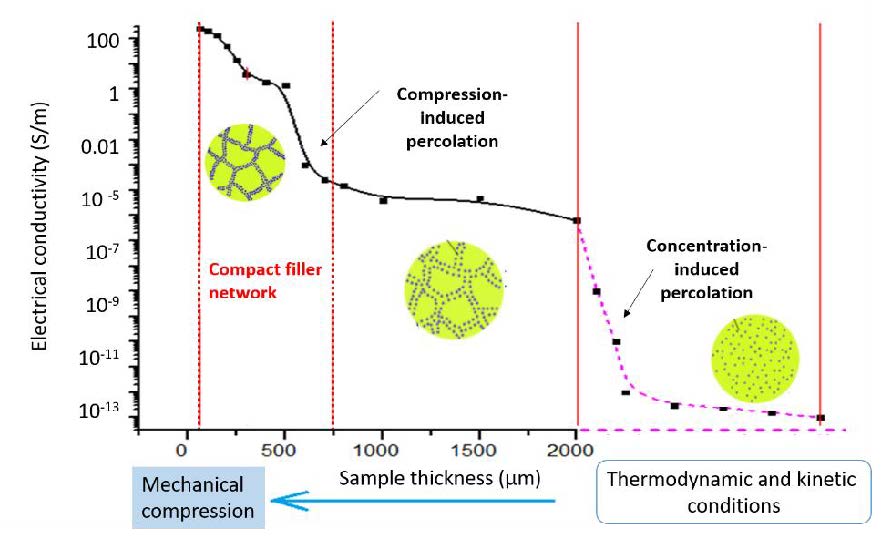Electrically conductive polymer composites are in high demand for modern technologies, however, the intrinsic brittleness of conducting conjugated polymers and the moderate electrical conductivity of engineering polymer/carbon composites have highly constrained their applications. In this work, super high electrical conductive polymer composites were produced by a novel hot embossing design. The polydimethylsiloxane (PDMS) composites containing short carbon fiber (SCF) exhibited an electrical percolation threshold at 0.45 wt%, and reached a saturated electrical conductivity of 49 S/m at 8 wt% of SCF. When reduced the sample thickness from 1.0 mm to 0.1 mm by the hot embossing process, a compression-induced percolation threshold occurred at 0.3 wt%, while the electrical conductivity was further enhanced to 378 S/m at 8 wt% SCF. Furthermore, the additional of a second nanofiller of 1 wt%, such as carbon nanotube or conducting carbon black further increased the electrical conductivity of the PDMS/SCF (8 wt%) composites to 909 S/m and 657 S/m, respectively. The synergy of the densified conducting filler network by the mechanical compression and the hierarchical micro-/nanoscale filler approach has realize super high electrical conductive yet mechanical flexible polymer composites for modern flexible electronics applications.

